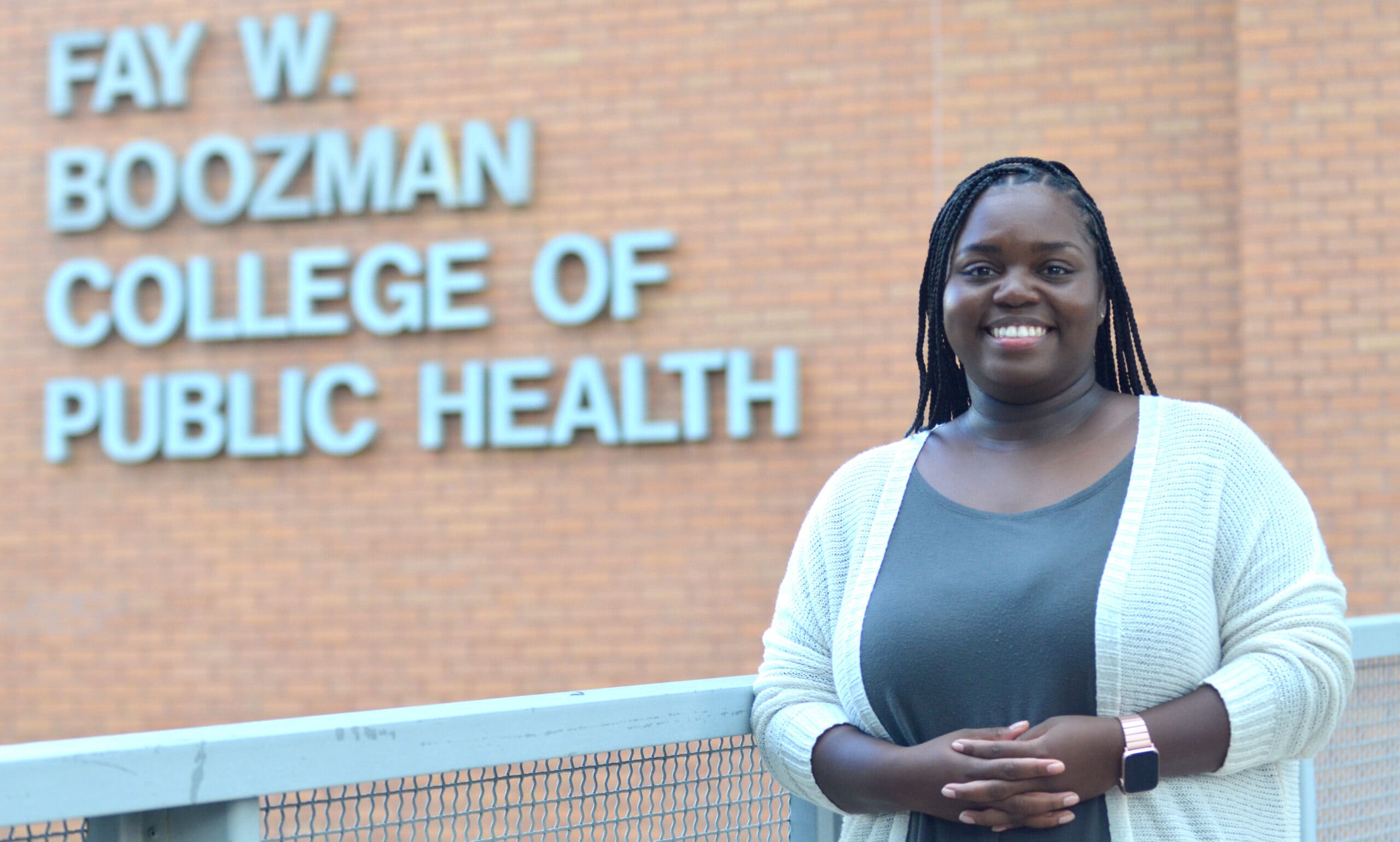Gardner Admitted to Esteemed Public Health Minority Scholar Program
| Alice Gardner, MPH, a doctoral student in the University of Arkansas for Medical Sciences (UAMS) Fay W. Boozman College of Public Health’s Health Promotion and Prevention Research program, earned entry into the Southern Region Educational Board (SREB)-State Doctoral Scholars Program.
“This is truly an honor,” she said. “This program gives a boost to students from underrepresented communities, making it possible for us to receive additional guidance, professional development and tools that will help us excel as academic faculty. The premise is to prepare us to one day be a public health faculty member.”
Gardner appreciates how faculty in the college encouraged her to apply for the project.
“When I finally accepted the advice of faculty and researched the program — I recognized that it was something I should apply for,” she said. “The networking and professional development opportunities are what caught my attention.”
The SREB partners with 16 states with a goal to improve public health education from early childhood through the doctoral stage. Its scholars program award goes to a pair of minority doctoral students who aspire to become college faculty members.
The program offers three years of direct support and institutional support, along with a $20,000 annual stipend. Additionally, Gardner will receive free access to the annual Institute on Teaching and Mentoring. She’ll also get professional development funds and admittance to the organization’s scholar directory.
“I’m grateful for how the scholar program adds support to what I already receive,” Gardner said. “The education and training, for example, what goes into completing a dissertation — those are pieces of the puzzle that minority students unfortunately don’t always receive. Being selected for the program helps to fill in those gaps where I’m not having to struggle with those facets of the journey.”
A native of Little Rock, Gardner grew up in the city’s 12th street area near UAMS. As an undergraduate at the University of Arkansas at Fayetteville, Gardner realized how the things her community lacked —such as sidewalks, clean parks and access to fresh foods — undermine a person’s well-being. She says the realization added a sense of urgency to her goal of becoming a public health professional.
“In my neighborhood, there are no grocery stores,” Gardner said. “But we have liquor stores. There are numerous cultural tendencies, social determinants of health in my home community that impact my health, my family’s health, and the health of other people I care about.
Gardner said that her education in public health and receiving the chance to participate in the scholarship program is confirmation that she is on the right track.
“Being in a position to give back for those coming up behind me and also being a leader in public health is important to me as a Black woman,” she said. “There are a lot of health disparities, especially in Arkansas, and I aspire to be a part of the improvements.
“For me, public health is about social justice. There are lots of people who I care about who can benefit greatly from policy change. That’s why from a personal and service standpoint — I’m so appreciative of the opportunity to take part in the scholar program.”
